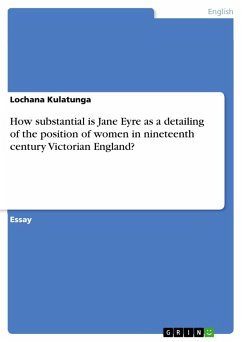Seminar paper from the year 2012 in the subject English Language and Literature Studies - Literature, grade: 1,3, University of Würzburg (Neuphilologisches Institut), course: Shakespeare's History Plays, language: English, abstract: 1. Introduction "Normans, but bastard Normans, Norman bastards!" (Shakespeare, Arden 3.5.10) This exclamation of the Duke of Britain when he thinks of the English invader King Henry and his approaching army is a testimony of the cordial dislike of the French towards their English enemy. Within Henry V there are many more instances of the French being prejudiced against the English but also vice versa. However, the quotation above does not only contain a token of the French aversion against their opponent in the Hundred Years War - the setting of this history play by William Shakespeare - but also alludes to the fact that the two nations are somehow interwoven - a circumstance that will be dealt with later on. Within this paper on Shakespeare's Henry V, I will take a closer look at the ways in which the two nations describe themselves and are described by others, as well as at the textual evidence that sheds light on some of the national prejudices that the English and the French have against each other. Finally, I will search for those points in the play that indicate a sort of closeness between the two parties. Concerning the choice of words, it has to be mentioned that, for the sake of simplicity, the terms England and the corresponding adjective English shall be synonymous with the totality of England, Scotland, Wales and Ireland, the four peoples that are fighting together under King Henry against the French.
Dieser Download kann aus rechtlichen Gründen nur mit Rechnungsadresse in A, B, BG, CY, CZ, D, DK, EW, E, FIN, F, GR, HR, H, IRL, I, LT, L, LR, M, NL, PL, P, R, S, SLO, SK ausgeliefert werden.









